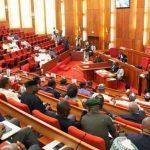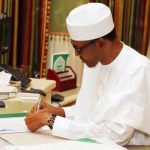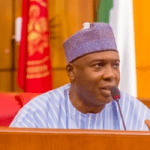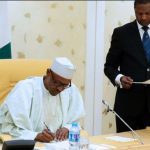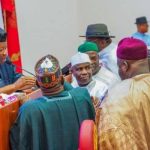After weeks of anticipation and speculation, the political landscape of Nigeria is abuzz with excitement as the long-awaited ministerial list has finally been sent to the Senate by President Bola Ahmed Tinubu. This crucial step marks a significant milestone in the formation of the new government and signals the beginning of a process that will ultimately shape the country’s trajectory for years to come.
As Nigerians eagerly await the confirmation hearings and subsequent appointments, the nation is holding its breath, expecting a team of competent and dedicated leaders who will steer the nation towards progress and prosperity. TVC News Senior Executive, Social and Digital, Wasiu Salami writes on the task ahead of the Tinubu’s federal executive council
Tinubu’s Political Legacy
Asiwaju Bola Ahmed Tinubu, popularly known as the “Jagaban of Borgu,” is a seasoned politician and a key player in Nigerian politics. His political influence, particularly in the Southwestern region of Nigeria, has been profound and enduring. Tinubu’s political journey began in the early 1990s when he was elected Senator for Lagos West Constituency. Later, he became the Governor of Lagos State, a position he held from 1999 to 2007, earning him respect as one of Nigeria’s most successful state executives.
Tinubu’s astute political strategies and ability to foster alliances have contributed significantly to the success of the ruling party, the All Progressives Congress (APC). He played a pivotal role in the formation of the APC in 2013, which ultimately led to the historic victory over the incumbent party in the 2015 presidential election.
The Ministerial List
The ministerial list, which comprises nominees for various cabinet positions, is believed to have been carefully curated by Tinubu and his team of advisors. Drawing from a diverse pool of talent and experience, the list is expected to present a balanced combination of seasoned politicians, technocrats, and fresh faces. It is aimed at addressing the pressing challenges facing Nigeria, including security concerns, economic development, infrastructural growth, education, healthcare, and youth empowerment.

Until Thursday, the contents of the ministerial list have been shrouded in secrecy, fueling speculation and debate across the nation. Various interest groups, political stakeholders, and citizens eagerly awaited its release, hoping to gauge the direction the Tinubu-led government will take in addressing the nation’s most pressing issues.
FIRST BATCH OF 28 MINISTERIAL NOMINEES ANNOUNCED AT SENATE PLENARY THUR JULY 27
1. Abubakar Momoh
2. Yusuf Maitama Tukur
3. Ahmed Dangiwa
4. Hannatu Musawa
5. Uche Nnaji
6. Betta Edu
7. Dorris Aniche Uzoka
8. David Umahi
9. Nyesom Wike
10. Badaru Abubakar CON
11. Nasiru Ahmed Elrufai
12. Ekperipe Ekpo
13. Nkiruka Onyejeocha
14. Olubunmi Tunji Ojo
15. Stella Okotete
16. Oju Kennedy Ohaneye
17. Bello Muhammad Goronyo
18. Dele Alake
19. Lateef Fagbemi
20. Muhammad Idris
21. Olawale Edun
22. Waheed Adebayo Adelabu
23. Iman Suleiman Ibrahim
24. Ali Pate
25. Joseph Utsev
26. Abubakar Kyari
27. John Enoh
28. Sani Abubakar Danladi
Confirmation Hearings and Expectations
As the Senate receives the ministerial list, the next phase in the process involves the confirmation hearings. Each nominee will undergo rigorous scrutiny by the Senate to assess their suitability for the positions they have been nominated for. The senators will thoroughly examine the nominees’ credentials, track records, and vision for the respective ministries.
Citizens expect the senators to act with diligence and impartiality during the confirmation process, putting the nation’s interests first. The appointments must prioritize merit, competence, and dedication to public service, fostering a government that is accountable and responsive to the needs of the people.
A Call for Unity and Collaboration
The formation of a new cabinet is an opportunity for unity and collaboration among Nigeria’s political class. Regardless of party affiliations, the aim should be to rally behind the selected nominees and support them in their mission to serve the nation diligently. A united government will be better equipped to address the multifaceted challenges confronting Nigeria and embark on a path of sustainable development.
Conclusion
With the submission of the ministerial list to the Senate, President Bola Ahmed Tinubu has taken a momentous step in shaping Nigeria’s political landscape. The nation now waits with bated breath for the confirmation hearings, hoping to witness the emergence of a competent and visionary cabinet that will usher in an era of progress and prosperity for all Nigerians. As the country moves forward, it is essential for political leaders and citizens alike to embrace unity and collaboration, placing the nation’s interests above all else. With the right leadership and collective effort, Nigeria can surmount its challenges and set a course towards a brighter future.




